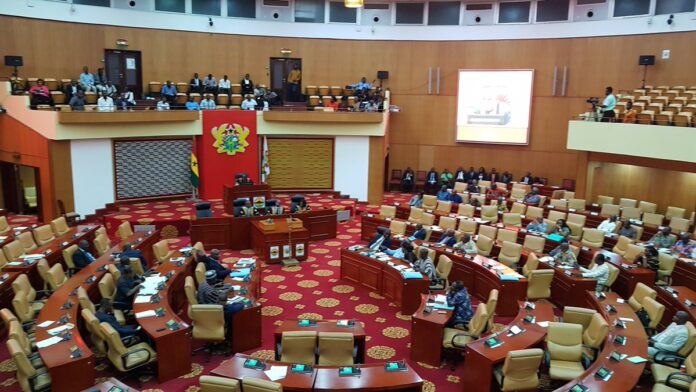The 2020 Auditor General’s (AG) report is making some interesting revelations, and the latest before us is that an amount of US$1,569,839 (GH¢7,294,572) for a budget that was released into COCOBOD’s Farmers’ Wards Scholarship Trust Fund for two academic years, 2017/2018 and 2018/2019, has been misapplied.
The 2017/18 and 2018/19 Parliament approved budgets for assessment of the syndicated loan, which showed that approximately GH¢7.3million was budgeted for the farmers’ wards scholarship.
According to the AG, the loans were assessed and the money released. The AG’s review of the Trust’s financial records showed that management did not release the funds into the Scholarship Trust.
However, the Fund’s management explained that that funds earmarked in the budget for the scholarship department are released based on the availability and request by the department, as the practice has been for all subsidiaries, divisions and departments of COCOBOD.
Management maintains that though the money was not released into the Trust to carry out its activities for the periods stated, there was enough money to perform its operational activities.
That said and done, the basic fact remains that the stated amount was released according to the records but the AG indicates it was misapplied, and the onus is on the fund to show where those funds are.
The report indicated that the Trust’s management also could not confirm the account in which the funds were being held.
Section 7 of the Public Financial Management Act, 2016 (Act 921) provides that a Principal Spending Officer of a covered entity shall ensure the regularity and proper use of money appropriated in that covered entity.
“We also noted that the Board did not realign the budgets for the fund in respect of the scholarship allocation during the period of our review. The Trust operated in the two years with funds already held in it,” the AG indicates in his report.
The AG cited management’s inability to release the funds as a result of government’s policy on Free Senior High School education, and concluded that failure to transfer the released budgets to the Trust means misapplication of the scholarship fund.
The AG recommends the Trust desist from this practice in all future budget allocations, and advises management to ensure efficient budget allocation for the board’s activities. Some of these common occurrences lead people like the president of Institute of Directors-Ghana (IoD-Ghana), Rockson Kwesi Dogbegah, to insist that corporate governance training should be mandatory in both the public and private sectors.
We couldn’t agree with him more…
DBG must not be just a clearing house…
The proposed new Development Bank Ghana (DBG) will operate by providing credit lines to existing commercial banks at affordable rates, and the commercial banks will in turn on-lend to the private sector at rates cheaper than the prevailing lending rates.
In essence, the DBG is being established to efficiently address long-term financing needs of the private sector.
However, Chief Executive Officer of the Private Enterprise Federation (PEF), Nana Osei Bonsu – based on the model the DBG will operate on – says it makes the bank more like a clearing house rather than addressing long-term financing needs of the private sector.
Nana Osei Bonsu believes the approach will not guarantee credit to businesses at affordable rates, because borrowers will still be subject to the existing procedures of banks which have made credit difficult and expensive to access.
The development bank looks more like a credit house which is set up just to distribute resources to other banks, the PEF CEO states.
To him, a better approach is to channel the US$500million seed funding meant for the development into private equity firms which are actually established to build up businesses to make them profitable.
The availability of a long-term pool of funding at affordable pricing for the private sector is what’s required, Osei Bonsu maintains. Perhaps the Finance Minister ought to clarify matters better, since the main constituency the bank is being established for already have their doubts about feasibility of the enterprise.
Mr. Ofori-Atta has been the main proponent for the establishment of a development bank for big-ticket transactions which the commercial banks have not been able to offer, so we believe he would be the right person to clear any doubt about the intended development bank and its prospects for growth of the economy.
It would be useful for the Finance Ministry to engage captains of industry to explain the rationale behind establishing the DBG and how its establishment will improve the country’s business environment.
Access to credit is regarded as prohibitive, particularly to the business community, with lending rates rather on the high side. This is what needs to be addressed adequately.










